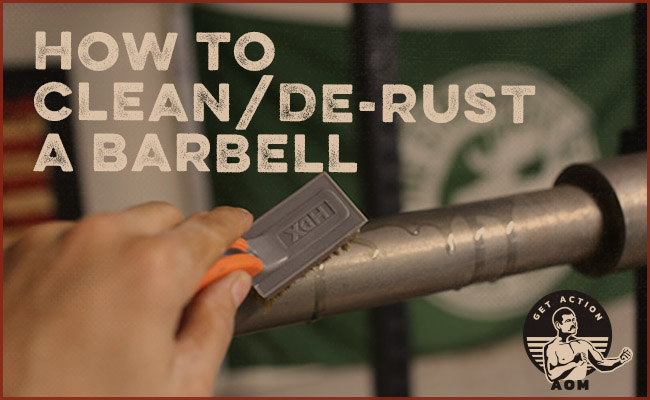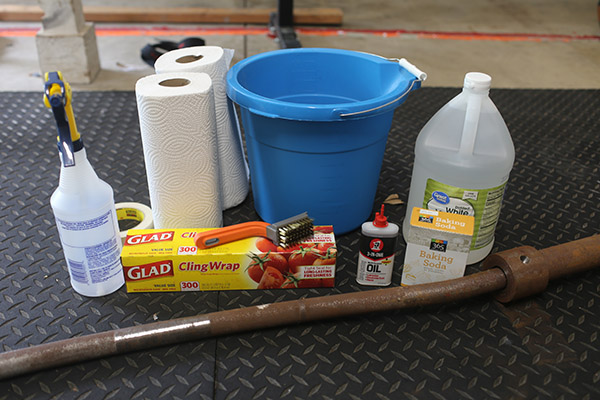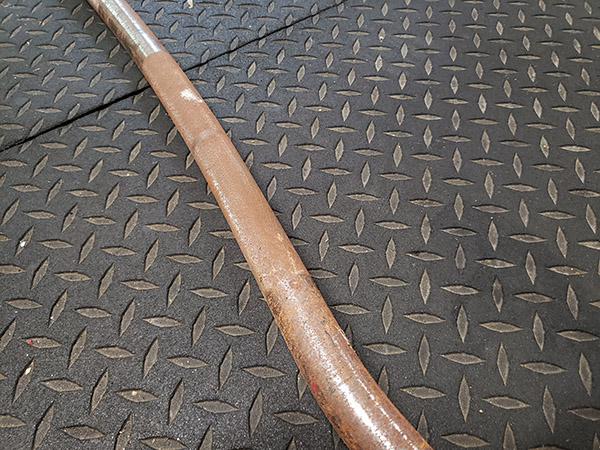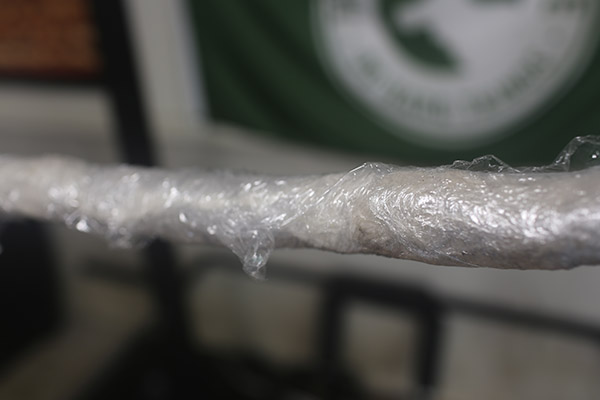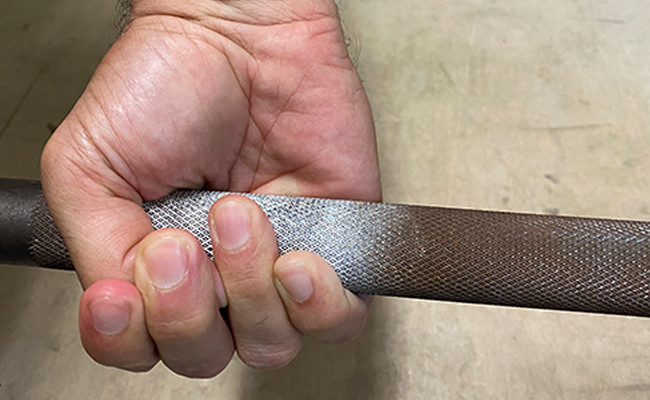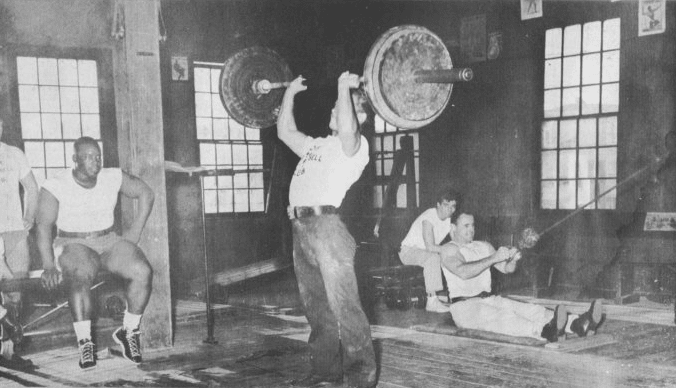I’ve been training in my garage gym for close to four years now. It’s been one of the best investments I’ve ever made.
During that time, I admittedly paid little to no attention to maintaining my gym’s equipment, beyond mopping my weightlifting platform and sweeping the rubber mats around it every now and then.
Thanks to my negligence, my barbells slowly developed a patina of sweat and rust. That’s the result of having my gym in a non-climate controlled garage. Unless your steel barbells have some sort of special coating or are made of stainless steel, the humidity in your garage will cause them to rust. The rust doesn’t look good, it gets on your clothes when you lift, and it can shorten the lifespan of your barbell.
So a few weeks ago, I took the time to finally clean my barbells up and began a regimen to keep them rust free. The process is a bit involved, but not terribly difficult to do; it was actually easier than I thought it’d be.
If you need to clean up your current barbell or you just bought a rusty one used, this guide will show you how to get it looking close to new.
Supplies Needed
- Rusty barbell
- Bucket
- White vinegar
- Baking soda
- Paper towels
- Plastic wrap
- Three-in-one oil
- Steel brush and brass brush
For this demo, I’m using my Duffalo Bar. It’s a fantastic steel bar that I use to squat when my bicep tendonitis is feeling cranky. Takes some of the pressure off the bicep tendons. It’s also great to bench with. I didn’t pay for any special coating on it, so over the years my Duffalo Bar had gotten pretty rusty.
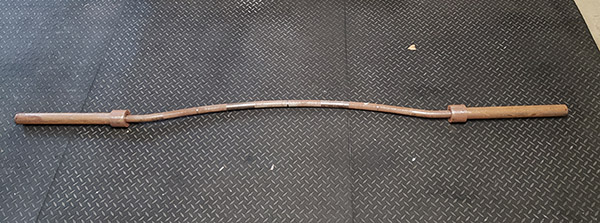
How to Clean and De-Rust a Barbell
Step 1: Use brass brush to do an initial brushing.
The goal is to clean off any loose bits of dirt or rust. No need to be thorough here. Should take less than two minutes.
Step 2: Soak in white vinegar overnight.
Soaking your bar in vinegar will do the lion’s share of rust removal. It’s amazing the improvement you’ll see after the soak.
There are two ways to go about soaking your barbell.
The first way is likely the most thorough. Disassemble the barbell by taking off the sleeves (the process for this will be different according to the barbell/manufacturer; find and follow the specific directions for yours). Place everything in a box that’s lined with a garbage bag and large enough to hold the barbell and the sleeves. Fill the box with vinegar until the barbell and sleeves are completely submerged. Soak overnight.
I didn’t personally have a box large enough to fit my barbell and sleeves, so I went with a second option: the paper towel method.

Fill a bucket with white vinegar so you can soak your paper towels.
Soak paper towels in vinegar and then wrap them around your barbell. Do it a section at a time. After you’ve wrapped one section with a vinegar-soaked paper towel, immediately wrap the towels with plastic wrap. This will prevent the vinegar from evaporating, which causes “flash rust” to form on the barbell. Flash rust is called flash rust because it appears really fast — like in just a few minutes. Flash rust doesn’t hurt the integrity of your barbell, it’s just creates more rust, defeating the purpose of the cleaning process!
Continue wrapping with vinegar-soaked paper towels and plastic wrap until your barbell is completely wrapped. Let it sit overnight.
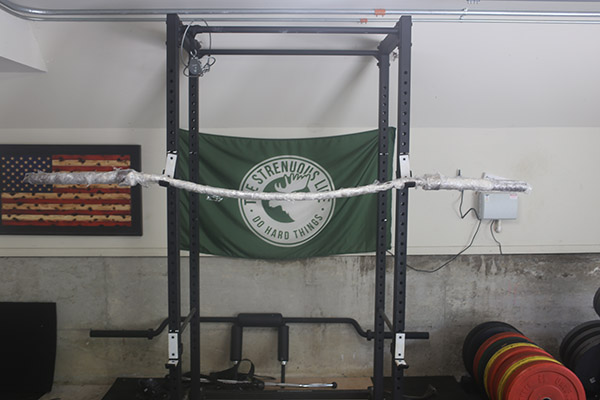
Your barbell should look like a saran wrapped mummy when finished.
Step 3: Brush off rust, rinse off vinegar, and neutralize with baking soda.
Alrighty. You’ve let your barbell soak overnight. Time to do a thorough cleaning.
This step is time sensitive. Once you take the barbell out of the vinegar soak, you only have a few minutes to get the vinegar rinsed off and neutralized before flash rust appears. So get everything ready before you take the barbell out of its vinegar soak.
Prepare a spray bottle that contains a mixture of water and dissolved baking soda; the exact ratio of water to baking soda doesn’t matter, but the more of the latter you get in there, the better. You’ll spray this on your barbell to neutralize the acidic vinegar and prevent flash rusting.
Also, have a water hose and your brass brush nearby.
Note: Don’t do this step on your squat rack or over your weightlifting platform. I thought I was being pretty clever putting the barbell on my squat rack. It made brushing and spraying the barbell down with the baking soda mix easy. But it left a giant mess on my wooden platform. The vinegar, baking soda, and oil mixture that dripped on it left permanent stains on the wood (and got on my Strenuous Life flag too). It’s not a big deal. I can still use my platform; it just doesn’t look good. Clean the barbell on your driveway (vinegar can damage grass); if you’re worried about it getting scratched, lay it on a tarp. Or if you have two sawhorses, lay it between them; elevating the barbell will make it easier to work on.
Got everything ready to go? Okay. Remove the barbell from the vinegar soak.
Immediately start brushing down your barbell with your brass brush. If the rust is really stubborn, use a steel brush (I had to do that with the Duffalo Bar).
After that initial brush, rinse the bar with water to get as much of the vinegar off it as possible.

Then thoroughly spray the bar with your baking soda and water mix.
If you work quickly and deftly, you should have a barbell that looks close to brand new at this point.
Step 4: Oil and brush the barbell.

Wipe the bar dry with a paper towel. Grab your three-in-one oil and apply a few drops to a section on your bar. Brush thoroughly. If you really want to be as thorough as thorough can be, use a wire wheel attachment on your cordless drill. I just used plain old elbow grease.

Oil and brush until you’ve done it to the entire bar and it looks as clean as you want. This was actually pretty meditative. Reminded me of cleaning a gun.
Step 5: Wipe down with oil one more time.
Put some of the three-in-one oil on a paper towel and give the bar one more wipe down. This will help prevent rust in the future.
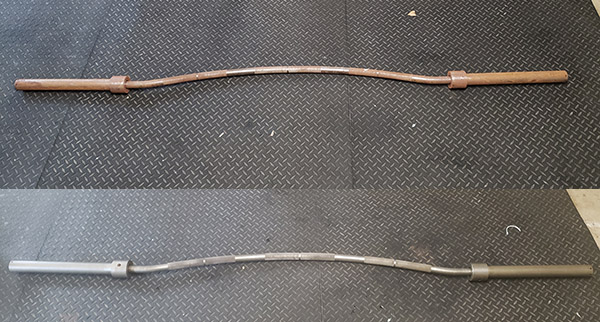
Before (top), After (bottom)
Take Care of Your Barbell and Your Barbell Will Take Care of You
To avoid having to do this thorough cleaning again, make barbell maintenance a regular part of your garage gym routine. After each barbell workout — especially if you use chalk on your hands — brush it with a wire brush. It takes all of 30 seconds to do.
Once a week, wipe down your barbells with a three-in-one oil. That will help minimize future rusting.


